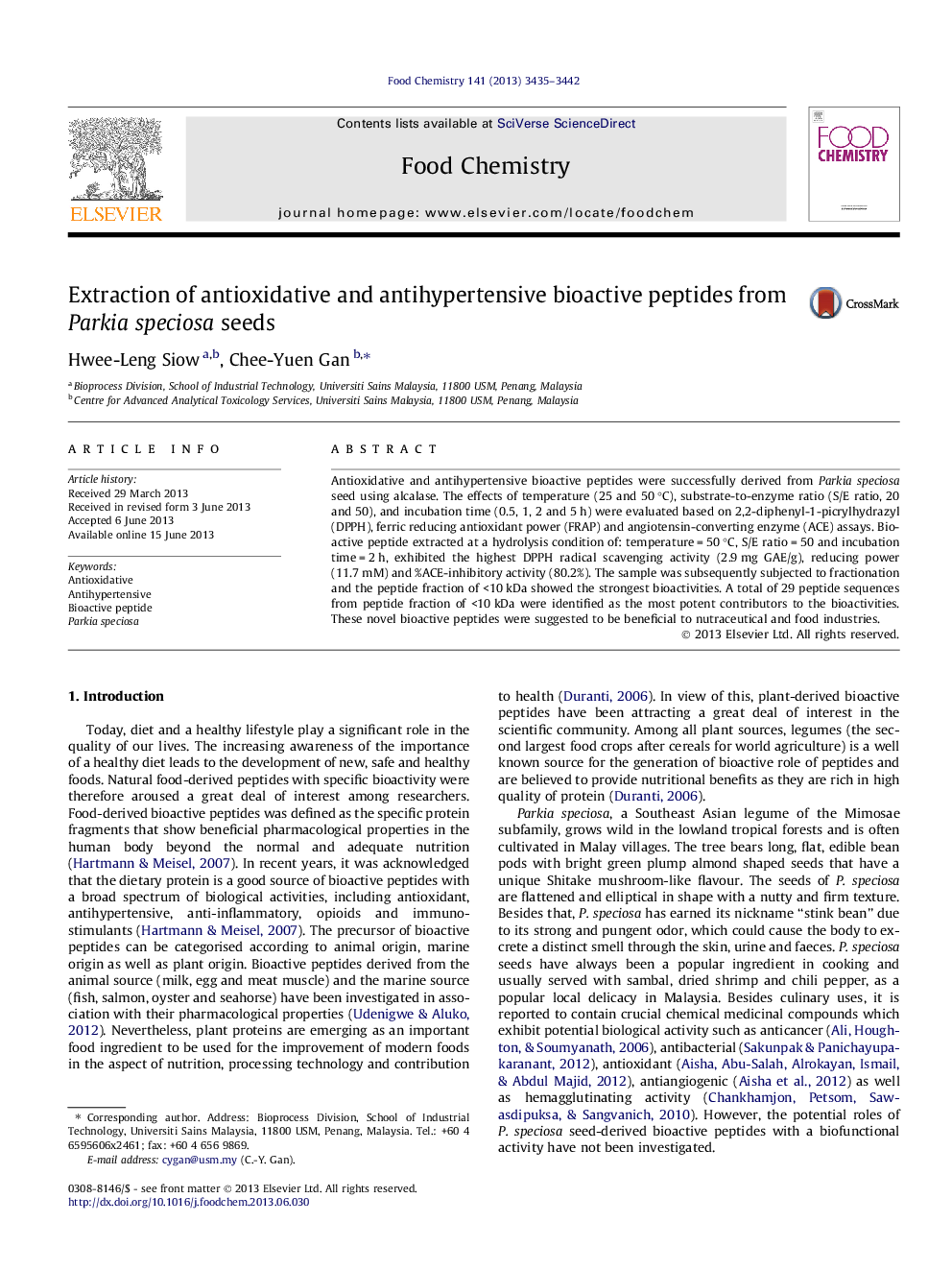| Article ID | Journal | Published Year | Pages | File Type |
|---|---|---|---|---|
| 10539806 | Food Chemistry | 2013 | 8 Pages |
Abstract
Antioxidative and antihypertensive bioactive peptides were successfully derived from Parkia speciosa seed using alcalase. The effects of temperature (25 and 50 °C), substrate-to-enzyme ratio (S/E ratio, 20 and 50), and incubation time (0.5, 1, 2 and 5 h) were evaluated based on 2,2-diphenyl-1-picrylhydrazyl (DPPH), ferric reducing antioxidant power (FRAP) and angiotensin-converting enzyme (ACE) assays. Bioactive peptide extracted at a hydrolysis condition of: temperature = 50 °C, S/E ratio = 50 and incubation time = 2 h, exhibited the highest DPPH radical scavenging activity (2.9 mg GAE/g), reducing power (11.7 mM) and %ACE-inhibitory activity (80.2%). The sample was subsequently subjected to fractionation and the peptide fraction of <10 kDa showed the strongest bioactivities. A total of 29 peptide sequences from peptide fraction of <10 kDa were identified as the most potent contributors to the bioactivities. These novel bioactive peptides were suggested to be beneficial to nutraceutical and food industries.
Related Topics
Physical Sciences and Engineering
Chemistry
Analytical Chemistry
Authors
Hwee-Leng Siow, Chee-Yuen Gan,
